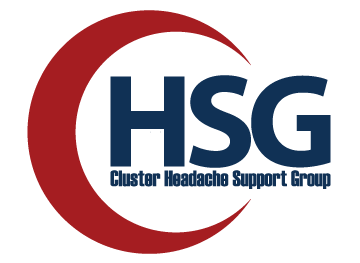The following is a summary of the information covered during the Emgality Q&A LIVE on September 24, 2021.
Emgality Safety
FDA Adverse Events Reporting System
- Reports on a particular drug or biologic do not mean that the drug or biologic caused the adverse event.
- FAERS data by themselves are not an indicator of the safety profile of the drug or biologic.
- There are many instances of duplicative reports and some reports do not contain all the necessary information.
- For any given report, there is no certainty that a suspected drug caused the event. The information in these reports reflects only the reporter’s observations and opinions.
- Submission of a report does not mean that the information included in it has been medically confirmed nor it is an admission from the reporter that the drug caused or contributed the event.
- The information in these reports cannot be used to estimate the occurrence rates of the events reported.
- Patients should talk to their doctor before stopping or changing how they take their medications.
Galcanezumab Adverse Events Report
- Most commonly reported side effect is injection site reaction
- 182 adverse events reported from 2018 to present
- 134 events were related to injection site irritation or reaction
Reality Check:
From 2018 to present, there were 47,220 adverse events reported for
acetaminophen (Tylenol) with toxicity being the most commonly reported side effect.
Emgality Insurance Coverage
Emgality is first and ONLY FDA-approved treatment for the prevention of cluster headaches.
Insurance Access Resources:
Patient Resources:
Scientific References:
- Bsteh G, Bsteh C, Broessner G. Refractory short-lasting unilateral neuralgiform headache attacks with conjunctival injection and tearing responsive to anti-calcitonin gene-related peptide monoclonal antibodies: A case report. Cephalalgia. 2021;41(1):127-130. doi: 10.1177/0333102420954558
- Dodick DW, Goadsby PJ, Lucas C, et al. Phase 3 randomized, placebo-controlled study of galcanezumab in patients with chronic cluster headache: Results from 3-month double-blind treatment. Cephalalgia. 2020;40(9):935-948. doi: 10.1177/0333102420905321
- Joshi, S. (2020), Peptides, MAbs, Molecules, Mechanisms, and More: Taking a Stab at Cluster Headache. Headache: The Journal of Head and Face Pain, 60: 1871-1877. doi: 10.1111/head.13909
- Kudrow, D., Andrews, J.S., Rettiganti, M., , et al. (2020), Treatment Outcomes in Patients Treated With Galcanezumab vs Placebo: Post Hoc Analyses From a Phase 3 Randomized Study in Patients With Episodic Cluster Headache. Headache: The Journal of Head and Face Pain, 60: 2254-2264. doi: 10.1111/head14011.
- Martinez JM, Hindiyeh N, Anglin G, et al. Assessment of immunogenicity from galcanezumab phase 3 trials in patients with episodic or chronic migraine. Cephalalgia. 2020;40(9):978-989. doi: 10.1177/0333102420920642
- Ruscheweyh R, Broessner G, Goßrau G, et al. Effect of calcitonin gene-related peptide (-receptor) antibodies in chronic cluster headache: Results from a retrospective case series support individual treatment attempts. Cephalalgia. 2020;40(14):1574-1584. doi: 10.1177/0333102420949866
- Silvestro, M., Tessitore, A., Scotto di Clemente, F., , et al. (2020), Erenumab Efficacy on Comorbid Cluster Headache in Patients With Migraine: A Real-World Case Series. Headache: The Journal of Head and Face Pain, 60: 1187-1195. doi: 10.1111/head.13832
- Szperka, C.L., VanderPluym, J., Orr, S.L., , et al. (2018), Recommendations on the Use of Anti-CGRP Monoclonal Antibodies in Children and Adolescents. Headache: The Journal of Head and Face Pain, 58: 1658-1669. doi: 10.1111/head.13414
- Yuan, H., Spare, N.M. and Silberstein, S.D. (2019), Targeting CGRP for the Prevention of Migraine and Cluster Headache: A Narrative Review. Headache: The Journal of Head and Face Pain, 59: 20-32. doi: 10.1111/head.13583
